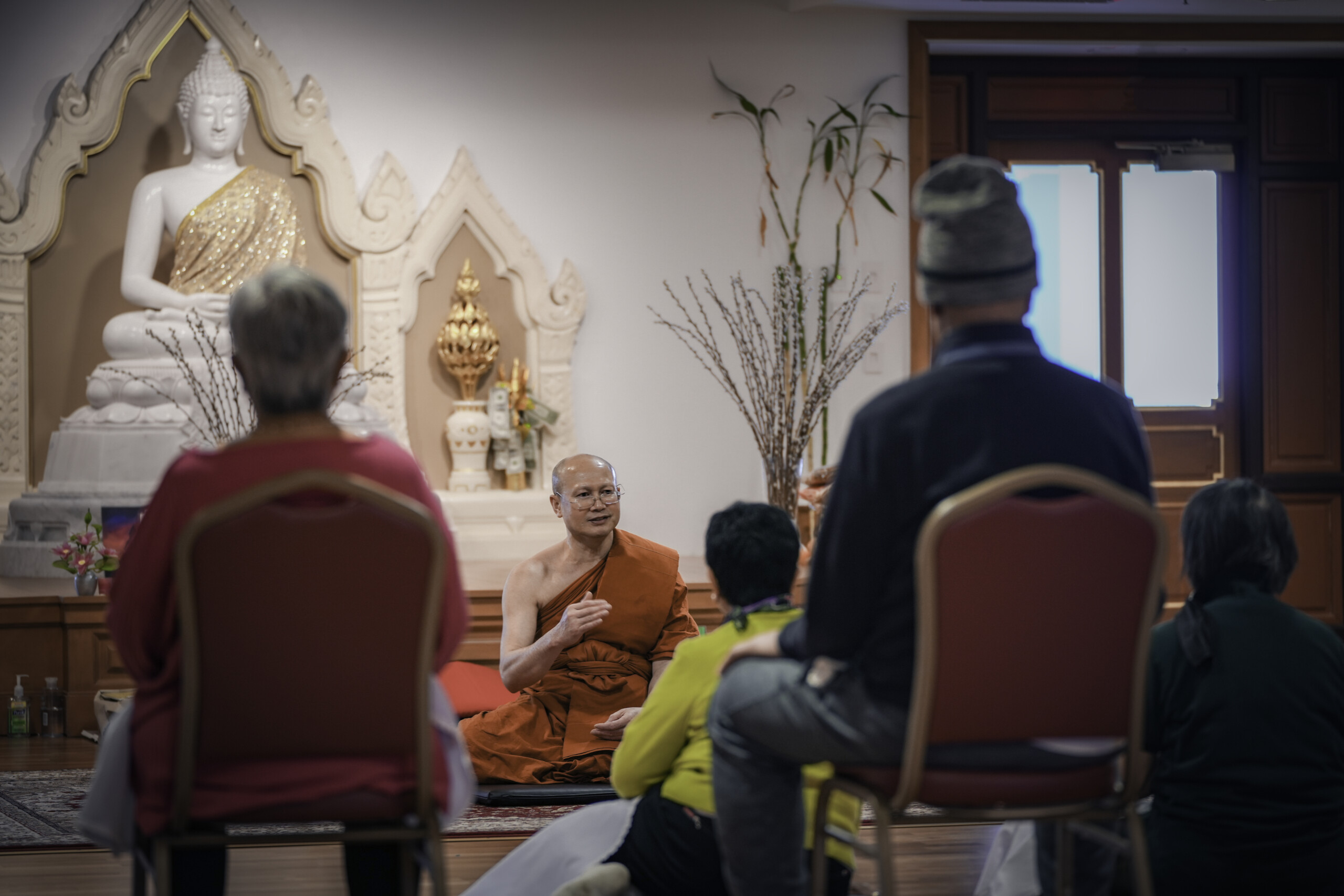Vipassana Meditation
Vipassana is one of India’s most ancient meditation techniques. Long lost to humanity, it was rediscovered by Gautama the Buddha more than 2500 years ago. The word Vipassana means “seeing things as they really are.” It is the process of self-purification through self-observation. One begins by observing the natural breath to concentrate the mind. With sharpened awareness, one proceeds to observe the changing nature of the body and mind and experiences the universal truths of impermanence, suffering, and agelessness. This realization of truth through direct experience is the process of purification. The entire path (Dhrama) is a universal remedy for universal problems and has nothing to do with any organized religion or sectarianism. For this reason, it can be freely practiced by everyone, at any time, in any place, without conflict due to race, community, or religion, and will prove equally beneficial to one and all
Understanding what Vipassana meditation is not can also help clarify its nature:
- Not Just Relaxation: While Vipassana meditation can lead to relaxation and stress reduction, its primary aim is not merely to relax or escape from daily life challenges. It involves deep introspection and insight into the nature of existence.
- Not Suppression of Thoughts: Vipassana does not involve suppressing thoughts or emotions. Instead, it encourages non-judgmental observation and acceptance of whatever arises in the mind.
- Not Magical or Supernatural: Vipassana meditation is a practical and systematic practice based on mindfulness and insight. It does not involve supernatural powers or magical rituals.
- Not Quick Fix or Instant Gratification: Vipassana is a gradual process that requires consistent effort and dedication. It is not a quick fix for life’s problems or a path to instant enlightenment.
- Not Exclusive to Buddhists: While Vipassana has deep roots in Buddhist teachings, it can be practiced by people of any religious or cultural background who are interested in developing mindfulness and insight.
Understanding what Vipassana is not helps dispel misconceptions and encourages a more accurate and effective approach to the practice.
What Vipassana is:
Vipassana, often translated as “insight meditation,” is a form of Buddhist meditation practice that focuses on developing mindfulness and deep awareness of the present moment. In Vipassana meditation, practitioners observe bodily sensations, thoughts, emotions, and mental processes with clarity and equanimity.
The goal of Vipassana meditation is to cultivate insight into the true nature of reality and the impermanent, unsatisfactory, and selfless aspects of existence. By observing these phenomena without attachment or aversion, practitioners aim to develop wisdom, liberate themselves from suffering, and attain a state of inner peace and freedom.
Vipassana meditation is traditionally taught through intensive retreats where participants engage in sustained meditation practice, often accompanied by noble silence and guidance from experienced teachers. This practice is rooted in the teachings of the Buddha and has been preserved and passed down through various Buddhist traditions
Vipassana meditation aims at the highest spiritual goals of total liberation and full enlightenment. Its purpose is never simply to cure physical disease. However, as a byproduct of mental purification, many psychosomatic diseases are eradicated. In fact, Vipassana eliminates the three causes of all unhappiness: craving, aversion and ignorance. With continued practice, the meditation releases the tensions developed in everyday life, opening the knots tied by the old habit of reacting in an unbalanced way to pleasant and unpleasant situations. Although Vipassana was developed as a technique by the Buddha, its practice is not limited to Buddhists. There is absolutely no question of conversion. The technique works on the simple basis that all human beings share the same problems and a technique which can eradicate these problems will have a universal application. People from many religious denominations have experienced the benefits of Vipassana meditation, and have found no conflict with their profession of faith.
He who is vigilant,
He whose mind is not overcome by lust and hatred,
He who has discarded both good and evil –
For such a one there is no fear.
Dhammapadha


